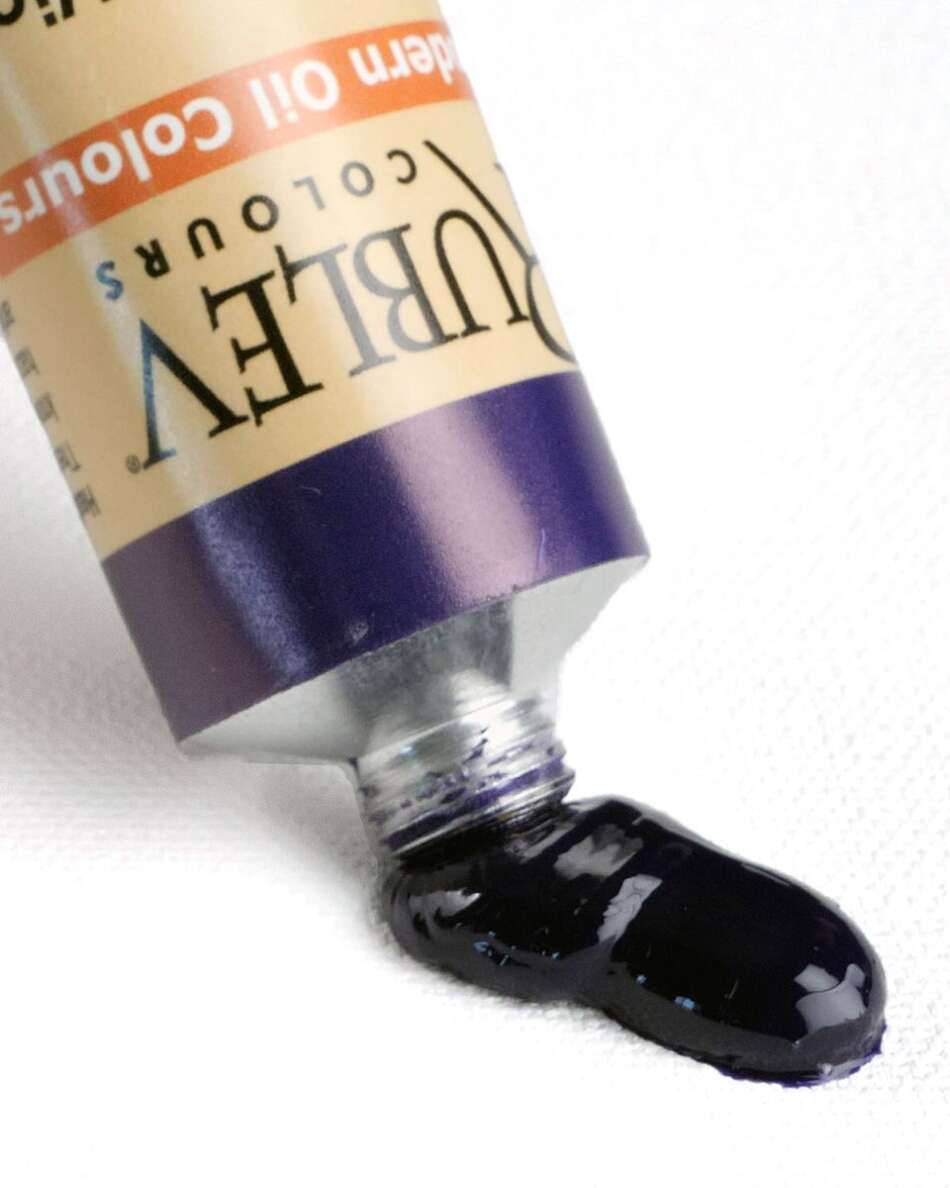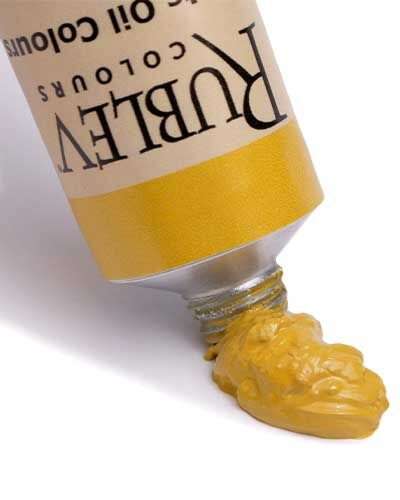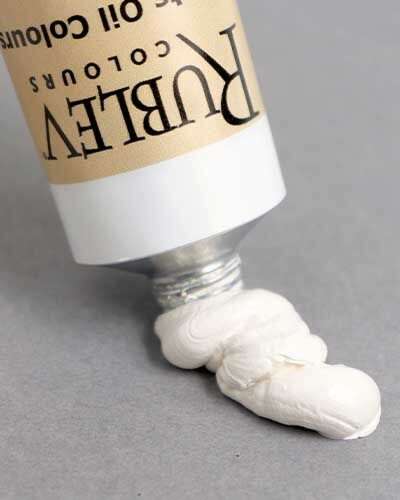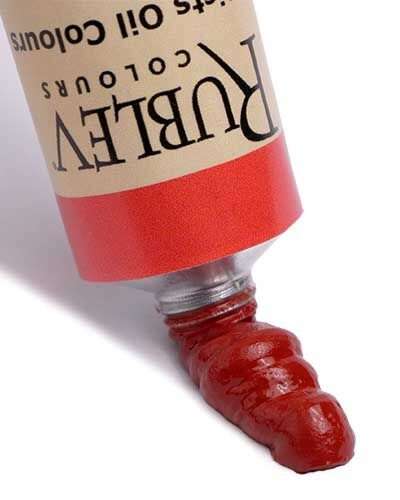Ultramarine Violet Oil Paint
Rublev Colours Ultramarine Violet Artist Oil offers a unique violet shade that is very clean and bright and can make whites “whiter.” It is semi-transparent to visible light and transparent to Near Infrared (NIR); hence, it is a “cool” pigment, but its cool performance highly depends on the substrate and type of paint. Ultramarine Violet is a transparent, fine-grained color with medium tinting strength.
Save When You Bundle Ultramarine Violet with Red Earths
Rublev Colours Ultramarine Violet is ground in linseed oil without additives to change the effect of the pigment and oil mixture. As a result, the paint is long, producing stringy brushmarks due to the hydrophilic nature of ultramarine.
Ultramarine Violet is a synthetic inorganic pigment composed of a complex silicate of sodium and aluminum with sulfur or sodium aluminum sulfosilicate. Ultramarine violet is made using the same process as ultramarine blue but is mixed with ammonium chloride, heated to 200–250° C., and exposed to air for 24–36 hours until the violet color develops. Other methods are also used to produce ultramarine violet.
Composition and Permanence
| Ultramarine Violet | |
| Color: | Violet |
| Binder: | Linseed oil |
| Additive(s): | None |
| Pigment Information | |
| Pigment: | Ultramarine Violet |
| Pigment Classification: | Synthetic inorganic |
| Colour Index: | Pigment Violet 15 (77007) |
| Chemical Name: | Sodium Aluminum Sulfosilicate |
| Chemical Formula: | Na8-x[(Al,Si)12]O24(Sy)2 |
| CAS No. | 57455-37-5 |
| Properties | |
| Code: | 721 |
| Series: | 2 |
| Opacity: | Transparent |
| Tinting Strength: | Medium |
| Drying Rate: | Medium |
| Lightfastness: | I |
| Permanence: | A - 3 |
| Safety Information: | Based on the toxicological review, there are no acute or known chronic health hazards with the anticipated use of this product. Always protect yourself against potentially unknown chronic hazards of this and other chemical products by avoiding ingestion, excessive skin contact, and inhalation of spraying mists, sanding dust, and concentrated vapors. Contact us for further information or consult the MSDS for more information. |
For a detailed explanation of the terms in the table above, please visit Composition and Permanence.
Notes
Some separation of pigment and oil may occur in Rublev Colours Artist Oils and is a natural process when no wax or stabilizers are added to paint to prevent this from occurring.
All images of color swatches on this website only approximate the actual color of the oil paint. We have carefully matched the color in these pictures on calibrated color monitors to the actual color. However, the results you get may vary because of the wide variance in color monitors.
Color Swatch Note: The color swatch was created with a thick application (left side) of color and a tint (right side) made with equal parts of color and titanium white and applied on acrylic primed cotton canvas.
Drawdown Note: The image of the "drawdown" contains a pre-mixed paint film of 6 mils (0.006 inches) thickness applied to a standard test card to examine color consistency, opacity, and other qualities. The drawdowns show the full-color strength (mass tone) on the left and mixed in a 1:2 ratio with titanium white on the right. The bottom area of the drawdowns is scraped to show undertones.
| Color Names | |
| Common Names: | English: ultramarine (synthetic) French: outremer German: Ultramarine Italian: oltremare Spanish: ultramarino |
| Synonyms: | azuro oltramarino, azurum transmarinum, azurum ultramarinum, bleu d'azur |
| SKU | 820-721 |
|---|---|
| Brand | Rublev Colours |
| Vendor | Natural Pigments |
| Processing Time | Orders ship on Tuesdays and Thursdays. |
| Color | Violet |
| Pigment Type | Inorganic, Synthetic |
Hazard Identification
Classification according to EC Regulation 1272/2008: This product is not classified as hazardous according to the CLP/GHS Directive.
Classification according to EC Regulation No. 67/548 or No. 1999/45: The material is not subject to classification according to EC lists. This product does not require classification and labeling as hazardous according to CLP/GHS.
Safety Designation
P280 Wear protective gloves/ clothing/ eye/ face protection.
P281 Use personal protective equipment as required.
P501 Dispose of contents/ container according to regional, national and international regulations.









